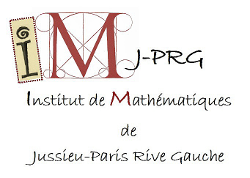| Résume | Given a C² smooth function u defined over a domain in C^n, the complex k-Hessian of u is the k^th symmetric sum S_k(u) of the eigenvalues of its Hessian matrix. The associated class of admissible functions is given by the conditions S_j(u) ≥ 0, j = 1, ⋯, k. These interpolate between subharmonic and plurisubharmonic functions. In the talk I will discuss the related potential theory and later I will focus on the solvability of the Dirichlet problem related to the k-Hessian equation in domains and on manifolds. In particular I will sketch an analogue of the Calabi-Yau theorem for these equations. If time permits some geometric applications will be mentioned. |

